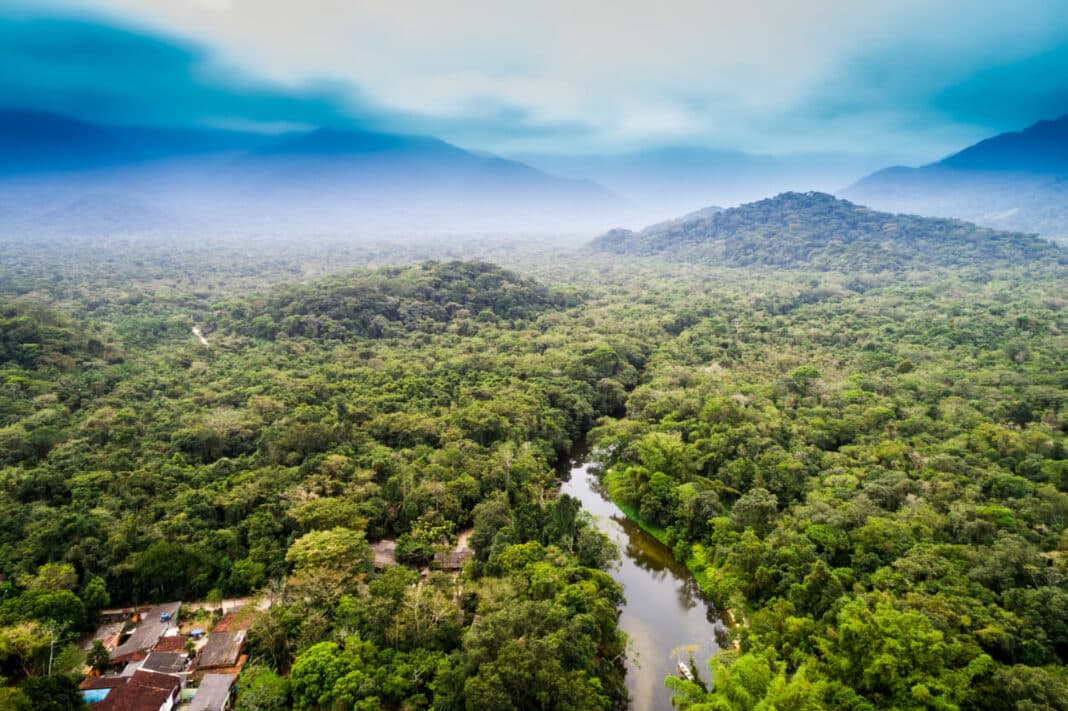Brazilian President Luiz Inacio Lula da Silva’s pledge to eliminate illegal deforestation of the Amazon rainforest by 2030 is going regional.
The eight South American nations that make up the Amazon rainforest have agreed to adopt the pledge in August, according to Albina Ruiz, the Peruvian Environment Minister.
“There is consensus regarding zero deforestation,” Ruiz said in a press conference in Lima.
After Brazil, Peru has the most extensive section of the Amazon.

The pledge is the most ambitious effort to protect the world’s largest rainforest, whose preservation scientists see as key to helping avert climate change.
It also faces enormous obstacles as the nations sharing the Amazon have economic interests that are at odds with its preservation.
Gold mining, oil and timber are among industries connected to the Amazon – with new research showing that Balsa Trees, native to the Amazon, could be used to help with gold extraction.
Peru will host the presidents of the eight nations — which include Bolivia, Brazil, Colombia, Ecuador, Guyana, Peru, Suriname, and Venezuela with Ruiz noting that the pledge “had already been included in the draft declaration.”
Brazil’s Action Plan for the Prevention and Control of Deforestation.
Announced by Lula and his Environment Minister, Marina Silva, the plan is the latest step in the country’s new platform to combat climate change.
“Brazil has resumed its leading role in tackling climate change after four years in which the environment was treated as an obstacle to the immediate profit of a privileged minority,” Lula said in a post on Twitter, alluding to the policies of his predecessor, Jair Bolsonaro.
“But rich countries also need to do their part. They were the ones who, over centuries, devastated forests the most.”
The announcement comes as Brazilian media agencies report the emptying of the Ministry of the Environment, led by Marina Silva.
The portfolio had attributions the Brazilian National Congress withdrew in the last week without resistance from the Planalto.
In May, the European Union introduced a new law banning the sale of coffee, cocoa, cattle, palm oil, soy, and wood connected to deforestation.
And earlier this year, investigative journalists with the International Consortium of Investigative Journalists (ICIJ), in collaboration with Deforestation Inc., scrutinised more than 2000 incidents involving known and unknown deforestation incidents – with Brazilian forest products amongst the highest risk profile for deforestation.
The plan to tackle deforestation
The plan stipulates increased use of satellite imagery to identify illegal logging, ranching, and mining operations.
And government databases containing financial intelligence, for example, will be deployed to track money flow from unsanctioned operations in the Amazon rainforest.
Under the plan, a system will also be developed to certify the origins of wood and agricultural products that might otherwise come from vulnerable or exploited ecosystems.
In addition to its deforestation efforts, the plan proposes to standardise land titles and create incentives for sustainable agriculture and other “green” activities, which include reforestation.
“Loggers in the country need to be told that, if they want to cut down trees, plant them,” Lula said of the proposed measures.
He also warned that there would be no excuse for felling old-growth forests. “In the land of the Brazilian people, we will be very tough in complying with the law.”
Deforestation is down by one-third, according to Brazil’s Government.
Last week the Brazil Government announced that deforestation in the Brazilian section of the Amazon dropped by 33.6% in the first six months of President Luiz Inácio Lula da Silva’s term.
The government reported that the rainforest shrank by 2,649 sq km this January-June, down from 3,988 sq km in those six months last year under President Bolsonaro.
The released government satellite data has yet to be verified independently.
“We have reached a steady downward trend in deforestation of the Amazon,” Marina Silva told reporters.
Inpe singled out June as the month that saw a record 41% drop in forest clearance compared to last year.
However, Brazil has a long way to go to correct surging deforestation rates.
Last month, Wood Central reported that Brazil was responsible for 43% of the world’s total deforestation in 2022.

According to data from the World Resources Institute and the University of Maryland aligned Forest Watch, Brazil dominates the losses of primary tropical forests.
In 2022, the primary loss in Brazil increased by 14%.
In Amazonas state, which is home to over half of Brazil’s intact forests, the rate of deforestation has almost doubled over the past three years.

The Amazon is the largest rainforest in the world, and 60% of it is in Brazil.
Due to the large number of trees growing there, it is often called “the lungs of the planet” because the trees absorb carbon dioxide and release oxygen.






